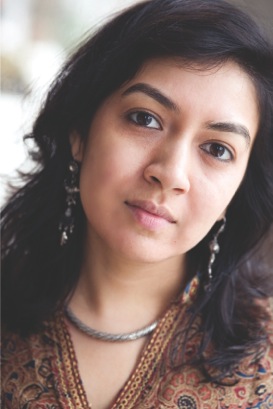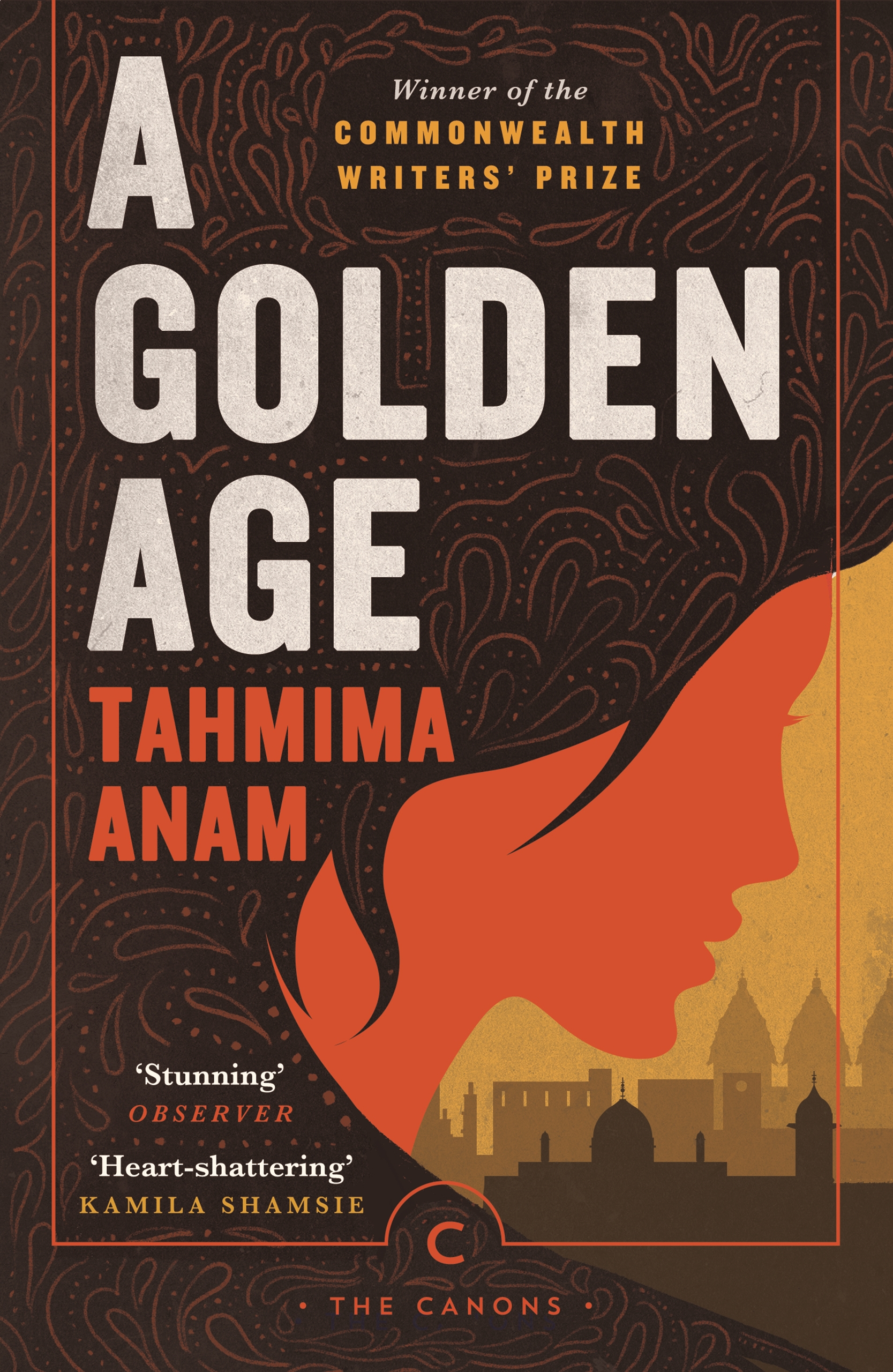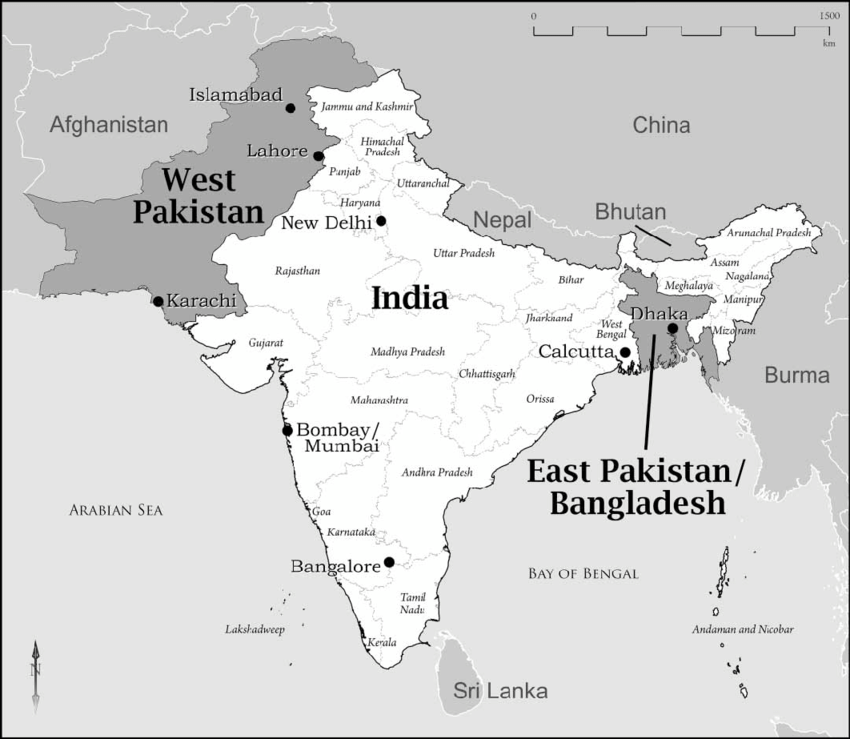Tale of Hope, Courage and Bangladesh’s Liberation War | Book Club Reviews Tahmima Anam’s A Golden Age
by Sehar Gupta
Content warning: this article refers to suicide and rape/sexual assault.
Novel Overview | A tale of war, hope and courage of Bangladesh’s Liberation War
A Golden Age is an award-winning debut novel of the Bangladesh-born writer, Tahmima Anam. It tells the story of the Bangladesh War of Independence through the eyes of one family. A story of hope, passion and revolution, this novel highlights how in the chaos of this era, every person from housewives, university students, the country’s leaders to soldiers must make difficult choices and how these choices can change the trajectory of their lives. In particular, this novel explores the journey of Rehana Haque and how she struggles to keep her family safe during the war while facing personal challenges.
In an interview Tahmima mentioned that her inspiration for this story was the lived realities of her grandmother who in 1971 used her home as a safe haven for freedom fighters fighting the Pakistan Army. Tahmima also studied this war during her post-graduate degree and spent two years in Bangladesh interviewing fighters. In 2008, a year after the novel was published, it was awarded the prize for Best First Book in the Commonwealth Writers’ Prize and was shortlisted for the 2007 Guardian First Book Award.
Generally, we (the Book Club members) found this book to be an easy read and were engrossed in the lives of Rehana and her children. What we loved most about the book was that as a group who had little knowledge about the Bangladesh War of Independence, this book made us want to learn about it. When we think of ‘Partition’ often the first thing that comes to mind is the India-Pakistan partition. Unfortunately, the Bangladesh Independence War is not as well known within the South Asian diaspora despite 30 million people being displaced over 9 months with 300,000 –3,000,000 people being killed. This book aims to raise awareness of Bangladeshi history and the struggles its people endured during this time.
Many of our members pointed out that they didn’t even know that Bangladesh was known as ‘East Pakistan’ until reading this novel. One member in particular noted that even though she’d been raised in India, she had never learned about the Bangladesh Liberation War. Similarly, another Book Club member who’d been raised in Pakistan mentioned how she’d not been taught about the devastating impacts of the war on Bangladeshi people, but rather the school curriculum focused on India’s involvement in the war and how they supported the dissolution of East Pakistan. At ASAC, we believe that history plays an important role in our sense of identity and self, the impacts of which can be felt after many generations. This is why it’s important that history is taught and part of the community’s consciousness instead of being dismissed or entirely neglected.


Discussion Topic 1:
One of the best ways to learn about history is by asking those with lived experiences to share their stories. This often gives us a real and unfiltered view of war, from those who have lived during such turbulent times. We asked our members to share some stories that they had heard from family members about the partition of India and Pakistan or Pakistan and Bangladesh and how it made them feel.
One member shared that during a particular riot in India, her mother was given a poisonous capsule to consume just in case she was captured, as it was believed that being killed was better than being in the hands of the enemy. She shared how horrified she felt knowing that her mother may have consumed the capsule if she’d been captured.
During the partition in India, it was quite common for women to be forced to or willingly commit suicide to protect community ‘honour’ and preserve the ‘purity’ of their religion (Butalia 1993). Historians discovered cases of mass suicides of up to 90 women at a time in certain villages where women would jump into a well as an act of suicide. As women were traditionally seen as the ‘nurtures’ and upholders of ‘culture’ and ‘honour’, they were expected to ‘sacrifice’ themselves for the greater good of the community. While often at the receiving end of violence in the form of abduction, rape, mutilations and forced marriage it’s also important to acknowledge that women were also found to be perpetrators of violence during this period.
Another member mentioned how they found the concept of war to be futile, and thought it unconscionable that some countries committed violent acts, dehumanised populations and caused utter devastation just because they didn’t want to lose control over a piece of land. Moreso, it’s interesting how during the partition between India and Pakistan land was divided on the basis of religion rather than culture. As a Pakistani Punjabi, she felt she had more in common culturally, with an Indian Punjabi rather than a Pakistani Sindhi and yet she remains separated from them by the border.
Discussion Topic 2:
Many of us find ourselves battling with our disapproving family members, whether it be because of our choice in career, partner, sexual orientation or simply because we want to live an independent life. Similarly, in the novel, Rehana finds herself on the opposite side of the conflict to her disapproving family and reflecting on this she considers what she would write to them. We asked our Book Club members, “if you could write a letter to someone who has disapproved of parts of you, what would you write?”
One member noted that her immediate family often doesn’t approve of what she does and sees many South Asian women becoming consumed by this conflict. She finds it to be a waste of energy and time to be consumed by conflict, especially when it feels like you won’t ever find middle ground. Agreeing with this sentiment, another member shared how she’d written a letter to a relative who had disapproved of her choice of partner. She explained that through therapy she’d learned how to considerately and maturely express her feelings. She expected some level of understanding after writing the letter, yet the response was very dismissive, damaging and overall made her feel horrible. At that point she realised that she didn’t need to write a letter in the first place and would be better off moving on. We found that while, at times, letter writing can be cathartic, it can become problematic if you’re expressing your feelings with the sole aim of eliciting empathy or changing another’s behaviour, but if you’re writing for your own benefit then go for it.
A member shared how her cousins in India would often body shame her 13-year-old male cousin. Hoping for him to unlearn the unhealthy environment he was raised in, she wrote him a letter to him letting him know that he was perfectly fine the way he was. Another member mentioned how if her older sister had written a letter like that to 13-year-old self, it would have changed the course of her life, and wished that growing up, her older cousins were this insightful.

Growing up, the words of those around us can really impact the way we see ourselves and how we feel about our bodies. We already live in a society where people are often judged for their size, colour and body hair, but hearing such negative comments from our loved ones often hurts the most. While our relatives may be making these comments to us with the intention of ‘helping’ us or giving us ‘advice’, all it actually does is promote feelings of being unworthy and unloved. The lifelong effects of these damaging interactions often take years to unlearn. Recently, one of our volunteers shared her story of dealing with acne and how she learned to love her skin, you can read the piece here.
Overall, our Book Club members really enjoyed reading A Golden Age as it was an opportunity for us to learn about the Bangladesh Liberation War and inspired some interesting conversions on war, history and relationships.
Written by Sehar Gupta
Edited by Erika Menezes
What’s next for ASAC Book Club?
For our next book we’ll be reading a nonfiction book,The Art of Gathering by Priya Parker, which highlights how to create transformative gatherings to allow for moving and mind changing experiences.
If you haven’t already done so, sign up to join our book club here (it’s free to join and open to all).
Support Services
If this article brought up any unwanted feelings, please visit the below services for support:
Beyondblue offers round the clock support online and via phone on 1300 22 4636
Lifelife visit their website or call 13 11 14

